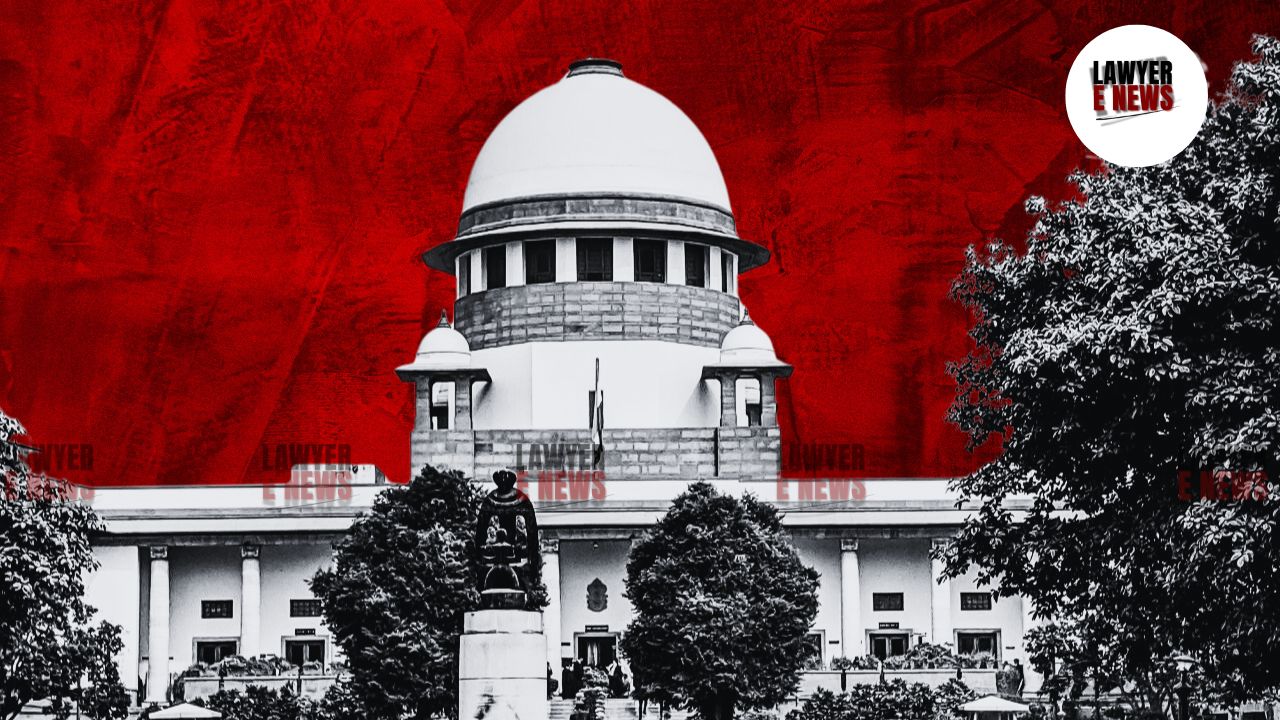-
by Admin
15 February 2026 2:36 AM



Supreme Court of India overturned a Karnataka High Court judgment allowing claims over disputed property in Jakkasandra Village, Karnataka. The Court strongly condemned attempts to manipulate judicial processes and reiterated that litigants who engage in fraudulent practices are not entitled to relief.
"Fraudulent Manipulation of Records Undermines the Rule of Law"
Whether the respondents could assert tenancy rights over the disputed property based on manipulated records and misrepresented facts, despite their earlier claims being conclusively dismissed.
The Supreme Court emphasized:
"A litigant who does not approach the court with clean hands is not entitled to relief and indeed forfeits the right to be heard."
The appeals arose over disputed ownership of Survey No. 49/43 in Jakkasandra Village, Karnataka, originally owned by Chinnappa and Munniappa. The property was purchased by the appellant, M/s Maxim India Integrated Circuit Design (P) Ltd., in 2004 from Basant Kumar Patil. The respondents, Andappa and Krishnappa, had unsuccessfully claimed tenancy rights in LRF No. 835/74-75 under the Karnataka Land Reforms Act, 1961.
Key Developments:
1981: The Land Tribunal dismissed the respondents' tenancy claim (LRF No. 835/74-75), and the order attained finality.
2003: The Karnataka High Court upheld a mutation order in favor of the appellant's vendor, confirming no pending tenancy claims.
2006-2010: The respondents resurrected tenancy claims in fresh proceedings based on altered names, fabricated facts, and false assertions, leading to a convoluted litigation history.
Legal Issues and Court Observations
Res Judicata and Finality of Tenancy Claims
The Court observed that the dismissal of the respondents' tenancy claim in 1981 conclusively barred further litigation on the matter:
"The 1981 Tribunal order, unchallenged and final, rendered subsequent claims untenable."
Fraudulent Manipulation of Records
The Court noted significant discrepancies in the respondents' submissions, including altered names and fabricated facts:
"The respondents engaged in deliberate manipulation, attempting to reopen settled matters under the guise of new claims."
Doctrine of Clean Hands
Reaffirming principles from Ramjas Foundation v. Union of India, the Court held:
"Litigants with unclean hands cannot seek relief from courts. The respondents’ conduct disqualifies them from judicial remedies."
The Supreme Court set aside the Karnataka High Court’s 2010 judgment, restored the earlier orders favoring the appellant, and directed lower courts to scrutinize such fraudulent claims strictly:
All Writ Appeals (Nos. 1708, 1705, 1707, 1709, 206, and 1738 of 2006) were dismissed.
Earlier orders from the Land Tribunal and the Karnataka High Court dismissing tenancy claims were reinstated.
The Supreme Court’s ruling underscores the judiciary’s role in protecting the integrity of legal processes and deterring fraudulent litigants:
"The courts cannot be a forum for litigants who distort facts and records to pursue untenable claims."
Date of Decision - January 2, 2025
